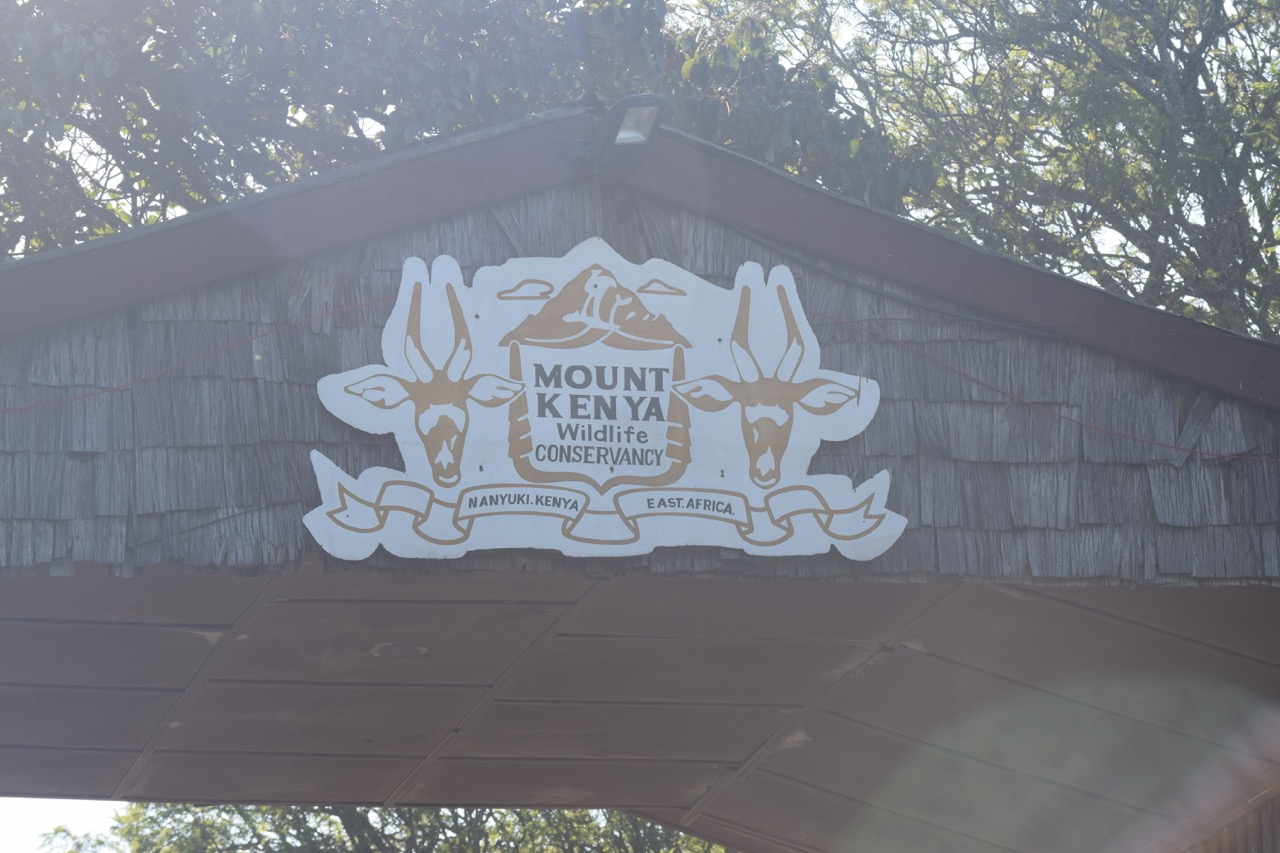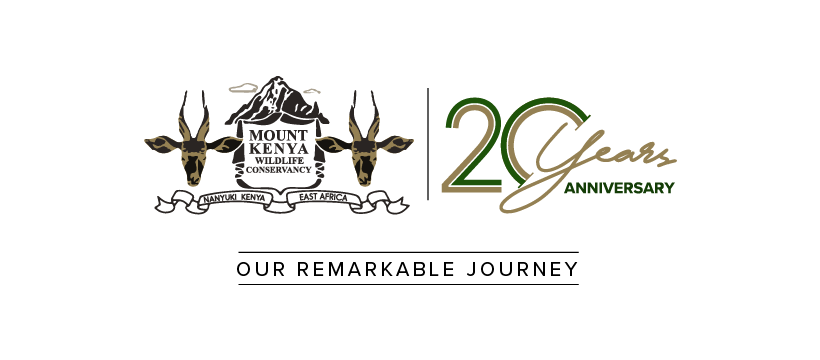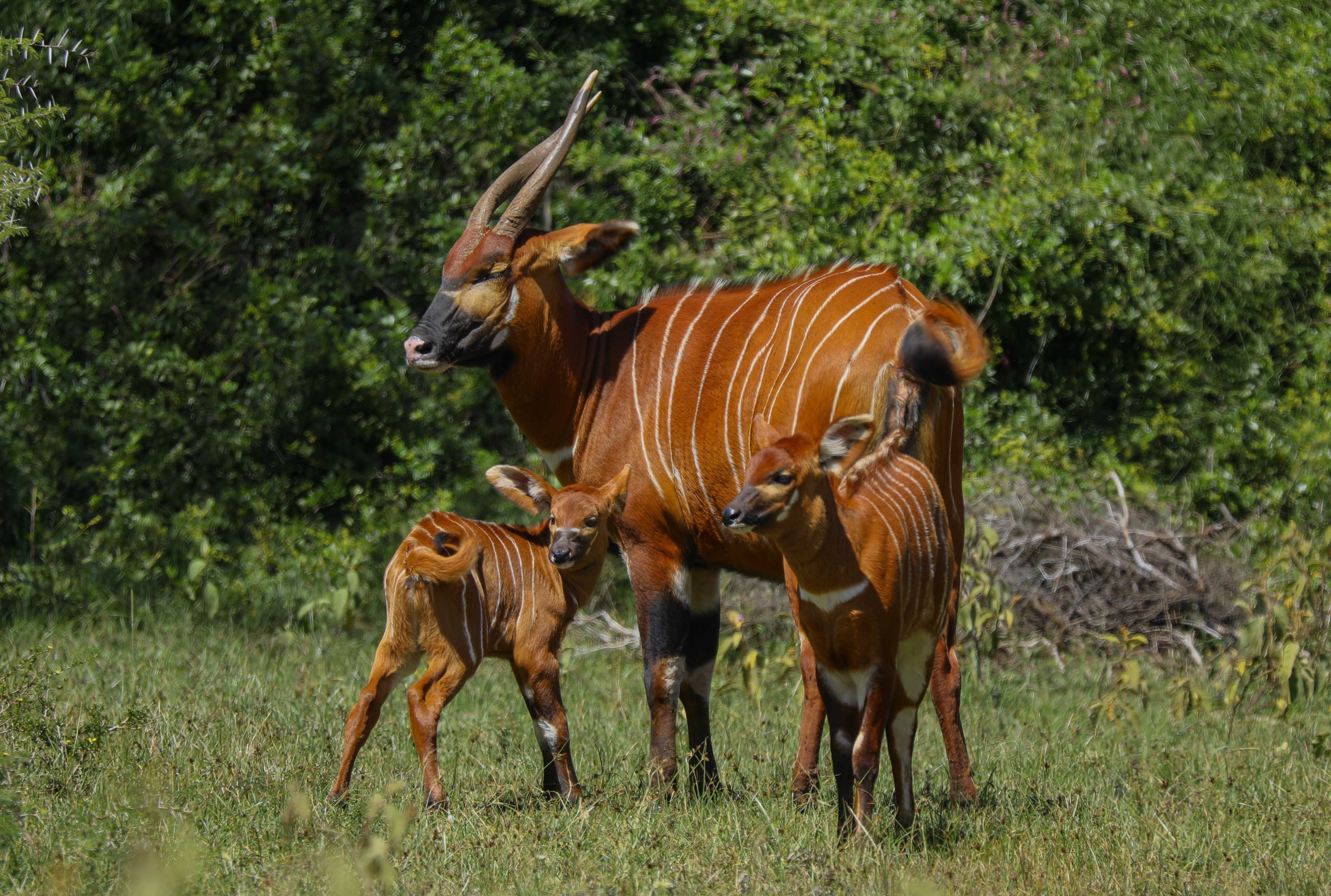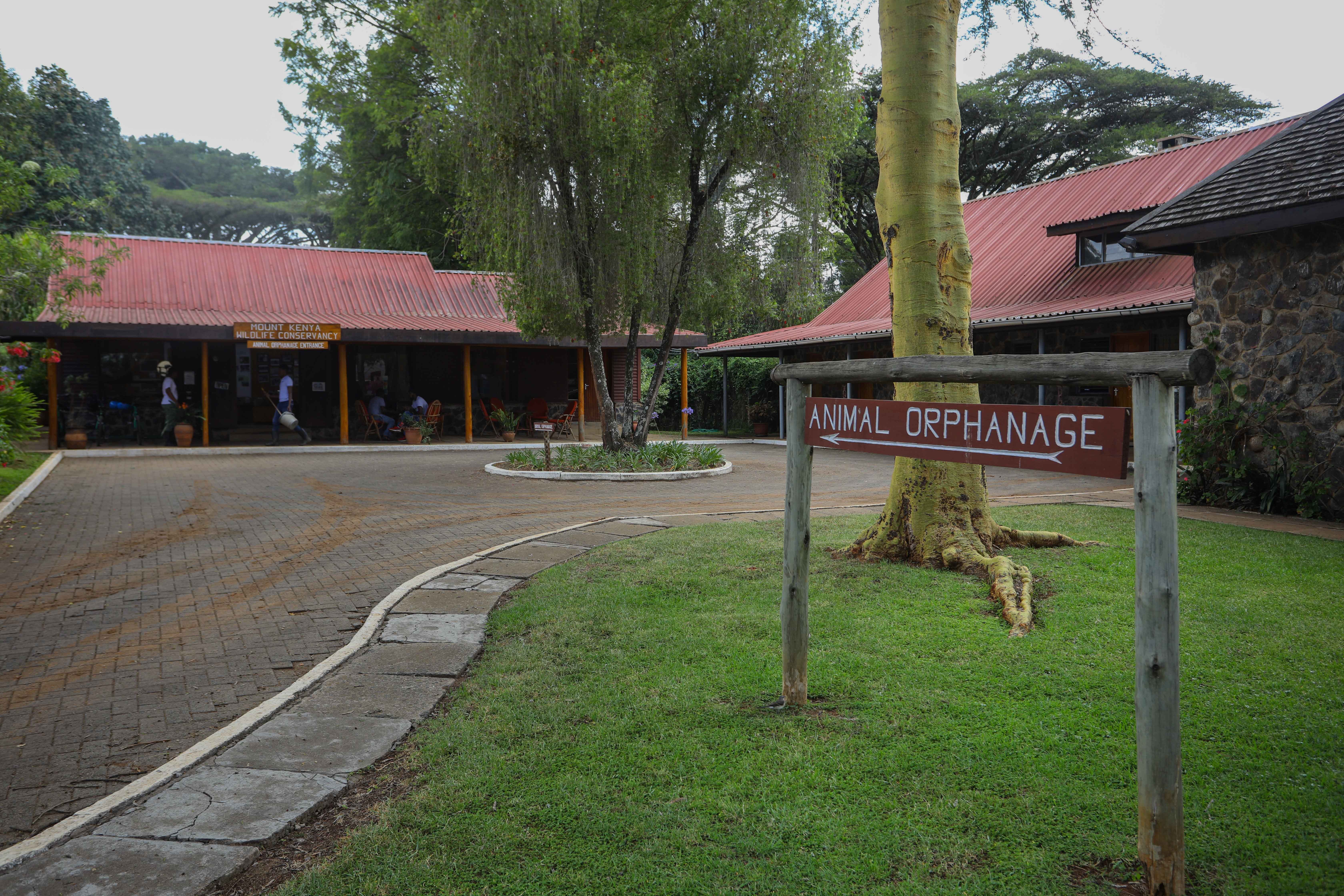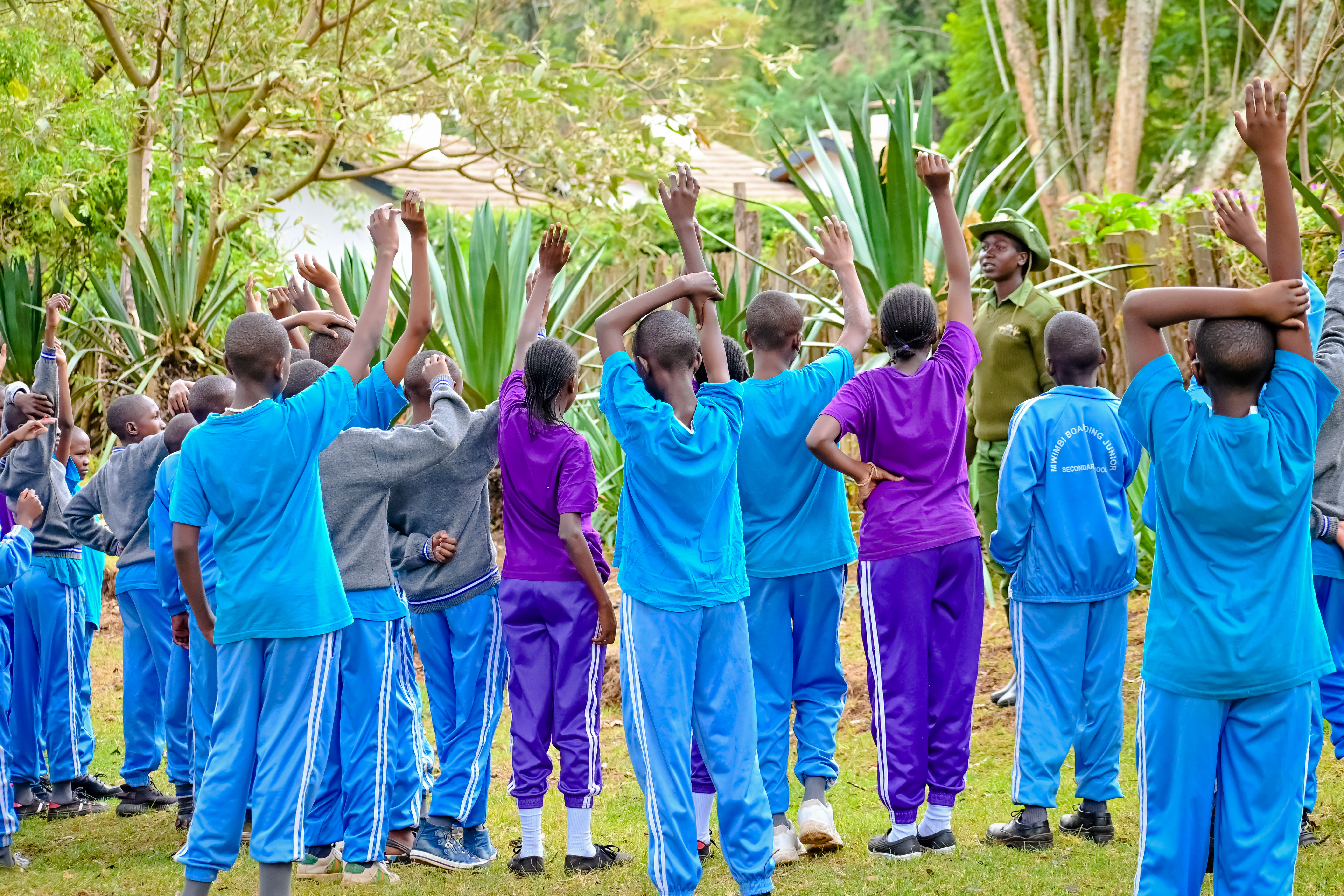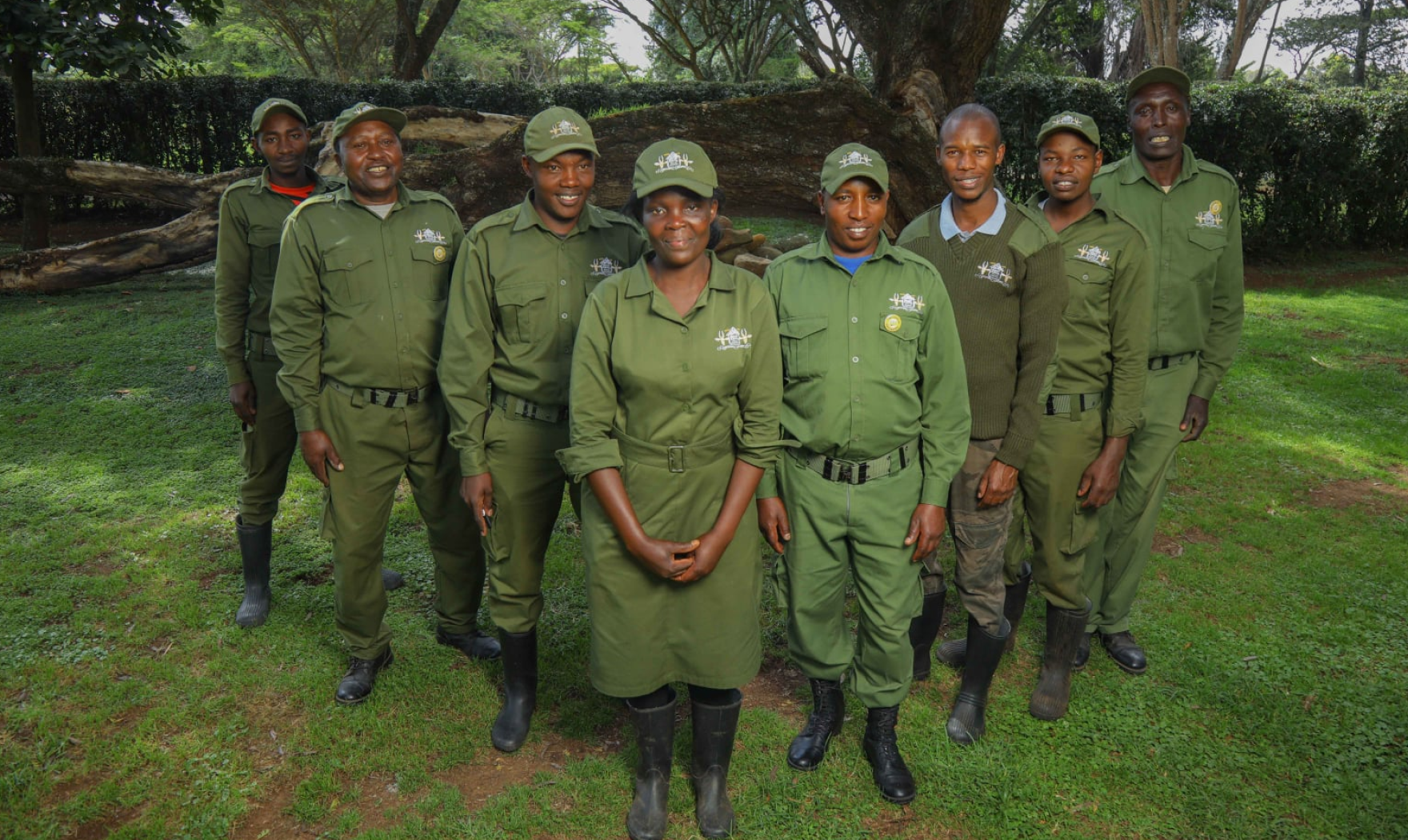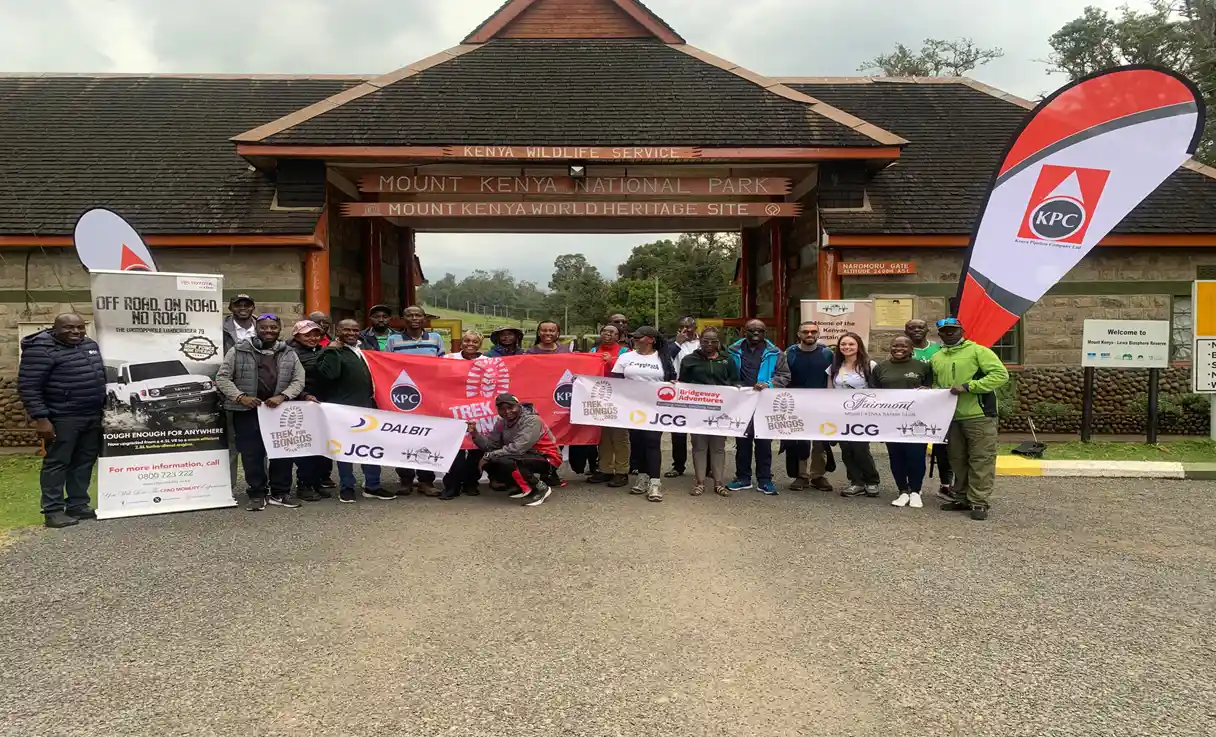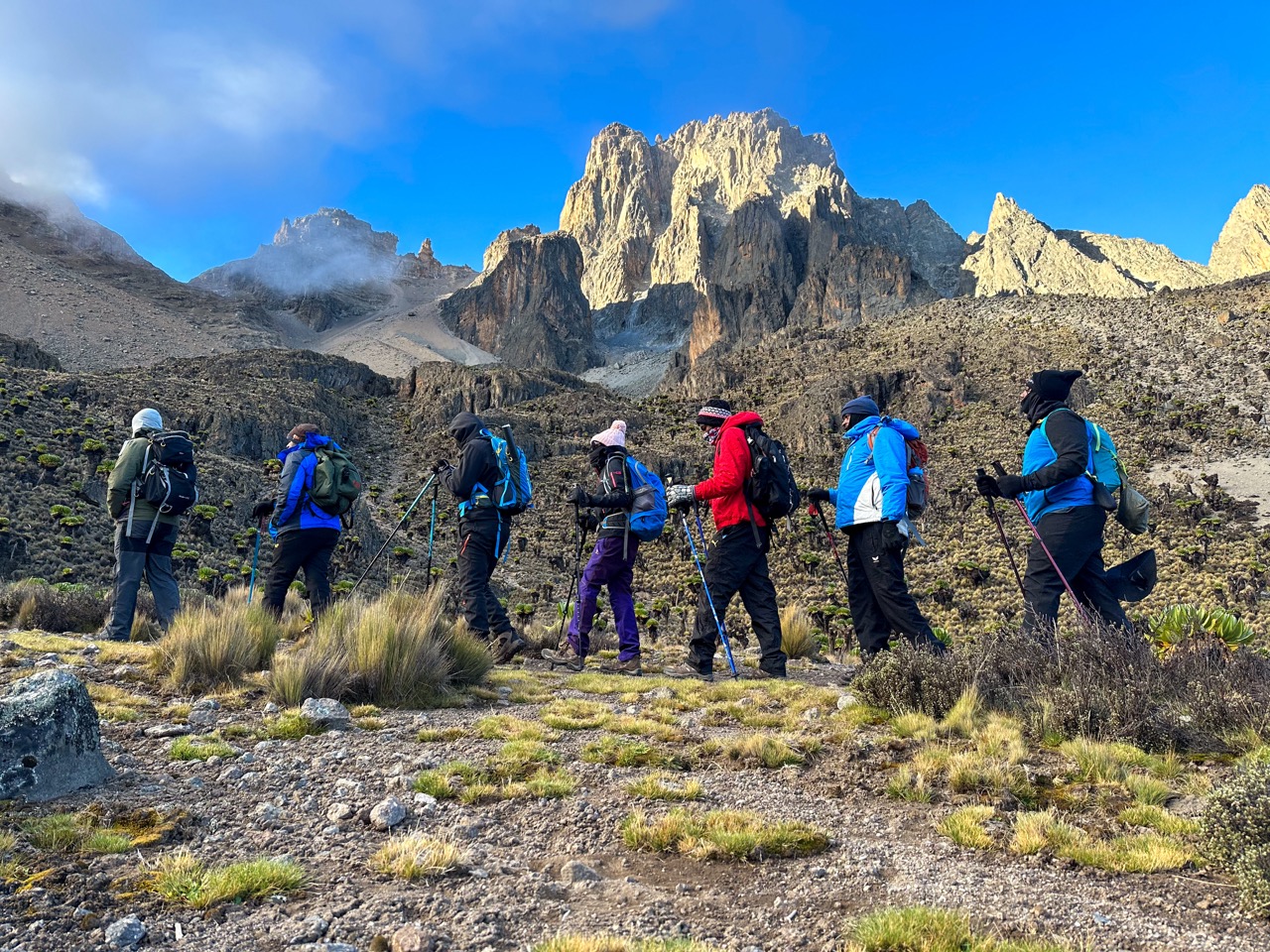press Release
BORN TO BE WILD: The world's first Mountain Bongo Sanctuary will help save the animal from extinction.

9 MARCH 2022, NANYUKI, KENYA:
Five Mountain Bongos (Tragelaphus eurycerus isaaci) have been released into the Mawingu Mountain Bongo Sanctuary, which was opened with a ceremonious ribbon cutting.
It is the first-ever Mountain Bongo sanctuary in Africa and the world, marking a historic milestone in the fight for the animal's survival, with less than 100 individuals left in the wild.
Hon. Najib Balala, the Cabinet Secretary for Tourism and Wildlife, officially opened the 776-acre sanctuary alongside Kenya Wildlife Service (KWS), Kenya Forest Service (KFS) and the Mount Kenya Wildlife Conservancy (MKWC), a non-profit organisation.
Speaking during the event, CS Balala said:
The Mountain Bongo is one of Kenya’s most important iconic animals. It is a critically endangered subspecies and can only be found here in Kenya. That is why in July 2019, we launched the National Mountain Bongo Recovery and Action Plan 2019 – 2023, in partnership with the Mount Kenya Wildlife Conservancy, KWS and KFS. The opening of the Mawingu Sanctuary today is another critical step forward to help achieve these aims. With the Sanctuary now operational, MKWC, KWS and KFS will have facilities to complete Mountain Bongo reintroduction end-to-end.
The decline of the Mountain Bongo
The critically endangered Mountain Bongo is one of the largest forest antelopes and is endemic to the equatorial forests of Kenya (Mount Kenya Forest, Eburu, Mau and Aberdares). This subspecies once roamed in large numbers but has suffered unprecedented population decline since the 1950s due to poaching, live trade, predation, and disease, particularly the rinderpest outbreak in the 1980s.
However, it has not yet received the same level of international attention as the 'Big 5' safari animals, which in part contributed to the recovery of their numbers.
According to the recent National Wildlife Census in Kenya, less than 100 Mountain Bongos are left in the wild. The International Union for Conservation of Nature (IUCN) predicts that this number will likely continue to decline unless deliberate actions to address the threats are put in place.
Turning the tide
Mount Kenya Wildlife Conservancy (MKWC) took on the daunting challenge of reversing this inevitable extinction of the Mountain Bongo in 2004 and started the breeding and rewilding program of the antelope in Kenya.
The team at MKWC, in proud partnership with KWS and KFS, have been leading a breeding and rewilding programme that has taken nearly 20 years to bring the Mountain Bongo back into the wild. This team released the first 5 Mountain bongos from the programme into the recently completed Mawingu Mountain Bongo Sanctuary at the foothills of Mount Kenya; this 776-acre pristine natural forest provides a more extensive area to continue rewilding the Mountain Bongo in preparation for survival in the wild.
The long-term vision of the Government of Kenya's Mountain Bongo national recovery and action plan (2019-2023) is to achieve a population of 750 individuals in Kenya by the year 2050. The opening of the sanctuary represents a significant step towards achieving this aim.
With the sanctuary now operational, MKWC, KWS and partners will now have facilities to complete Mountain Bongo reintroduction end-to-end.
Breeding and rewilding of the Mountain Bongo will continue to be done concurrently, thus creating a stream of candidates to support reinforcement of wild Mountain Bongo populations and reintroduction into the historical ranges.
The sanctuary has opened with 5 Mountain Bongos already primed for that environment. Every subsequent year, an additional 10 Mountain Bongos will be translocated into the sanctuary in groups of 5 every six months. Individual Mountain Bongos to join the sanctuary will be selected offspring from the breeding herds and allowed to roam and mate randomly in the sanctuary.
It is estimated that by 2025, the sanctuary will have 50-70 fully rewilded Mountain Bongos.
Rewilding
The aim of the Mountain Bongo breeding and the rewilding programme is to have individuals that are fully rewilded and therefore competent to survive in the sanctuary and eventually the wild.
Total weaning from human dependence is a gradual process requiring technical skill, patience, and commitment to allow the animals to adapt independently. This requires spaces with every vital component for their survival: an appropriate habitat, foliage, and enough space to exhibit normal behaviour and fully accommodate natural selection.
The Mountain Bongos born in the programme, which are successfully rewilded, will be provided to KWS for translocation to reinforce the wild populations and reintroduce them in the former ranges.
The rewilding process:

Preservation through education
The long-term success of today's release and eventual survival in the wild depends on the communities' support in surrounding areas. Most of the threats that caused the Mountain Bongo population decline was primarily human-driven. Therefore, it is crucial to address this as part of the recovery actions for the species.
MKWC has set up community conservation, education, and empowerment programs to create awareness to address these threats. Annually, MKWC hosts over 20,000 students on school trips and supports over 30 students on six-month internships.
Local communities are also provided with the opportunity for hands-on training on ecosystem restoration. The Conservancy works with the communities to restore degraded areas within Mount Kenya forest through its forest restoration and reforestation program. Under this partnership, MKWC has involved 3,000 community members in planting over 35,000 indigenous tree species in Mount Kenya Forest. In 2022, MKWC is planning to plant another 5,000 trees with the support of the communities.
The long term goal
MKWC firmly believes that with the collective action of MKWC, the government of Kenya, KWS, KFS and local communities, Mountain Bongo numbers will rise and eventually be removed from the IUCN's critically endangered list.
Today, approval has been granted for the Mount Kenya Wildlife Conservancy to import healthy Mountain Bongos from suitable sources in Europe and American zoos. This will ensure the breeding and rewilding programme continues to be successful with genetic diversity.
Dr Robert Aruho, Head of Veterinary Services at MKWC, said:
Today is the culmination of dedicated conservation work that has spanned over almost two decades. It marks the single most significant step towards the survival of the Mountain Bongo in history.
The real work now begins. We must ensure that the animals released today can thrive and survive in the sanctuary and, eventually, the wild.
We look forward to continuing our partnership with the government of Kenya, KWS and KFS. Our shared commitment means that for the Mountain Bongo, a bright future awaits.
Julius Kamau, KFS Chief Conservator of Forests, said:
Collaboration is key for the successful protection of any endangered species. And without working closely with KWS, the Ministry for Tourism and Mount Kenya Wildlife Conservancy, we could not have arrived at this important moment in time to save the mountain bongo.
We stand ready and willing to nurture these vital partnerships to achieve our shared goal of rewilding the Mountain Bongo, an animal which holds great national significance in Kenya
Humphrey Kariuki: Patron of Janus Continental Group
This is a milestone moment and a great step towards saving this critically endangered species. Conservation has been a lifelong passion of mine; throughout my career I have sought to build sustainable businesses which can give back to the communities and environments that support them.
The opening of the Mawingu Mountain Bongo Sanctuary is a prime example of this, with the Fairmont Mount Kenya Safari Club directly supporting the vital conservation efforts of the Mount Kenya Wildlife Conservancy. Going forwards, it will take all of us to ensure we successfully achieve a sustainable Mountain Bongo population in the wild by 2050.
